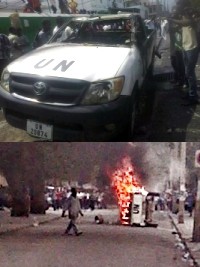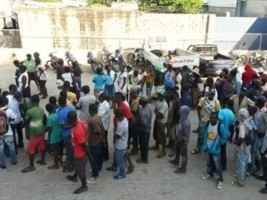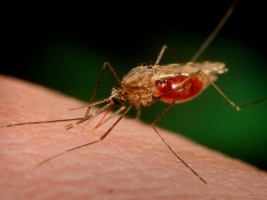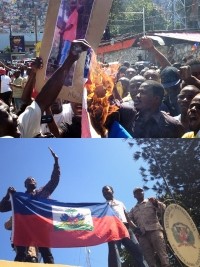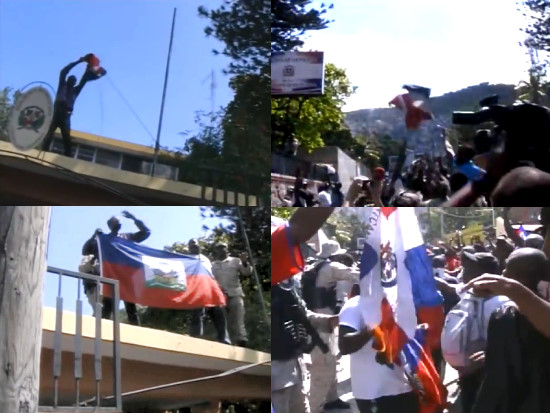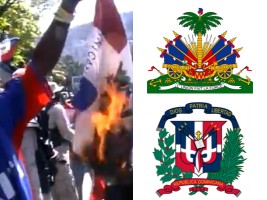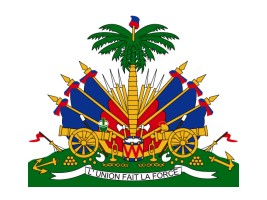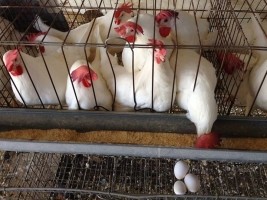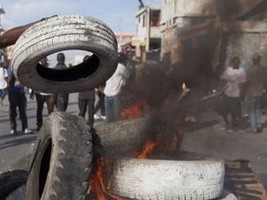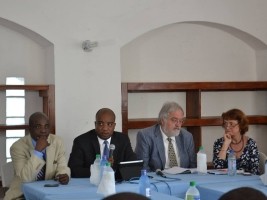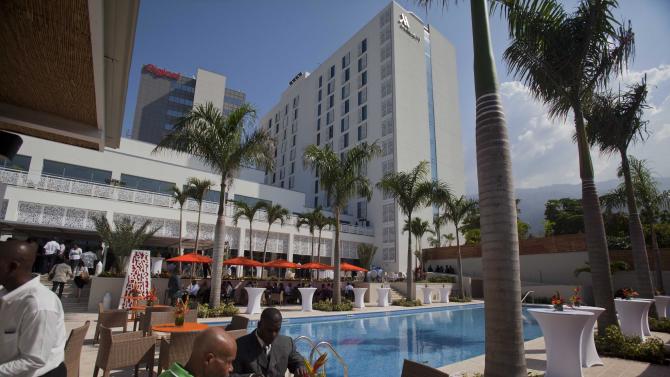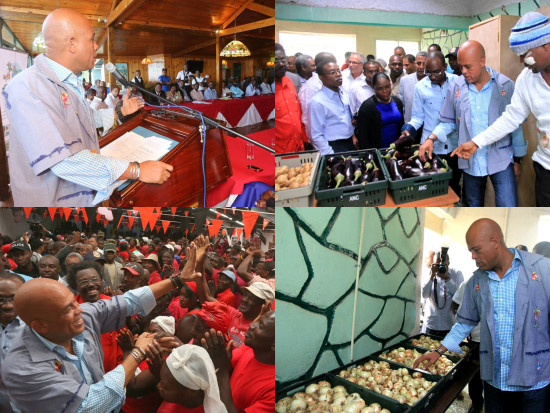AN APPARENT CONTRADICTION?
POPULAR PERCEPTIONS OF HAITI AND THE FOREIGN POLICY OF THE DOMINICAN REPUBLIC
Dr. Ernesto Sagas
Department of Latin American and Puerto Rican Studies
Lehman College, The City University of New York
Paper to be presented at the Sixth Annual Conference of the Haitian Studies Association, Boston, MA
October 14-15, 1994
INTRODUCTION
The foreign policy of the Dominican Republic revolves around two axis. The first one is, as for most countries in the region, obviously, Washington, D.C. The second one is Port-au-Prince. The latter has less to do with trade interests than with security concerns. Haiti and the Dominican Republic are two nations trapped by historical circumstances in a small Caribbean island. A rare case, indeed, that causes events on one part of the island to have an eventual impact on the other side. There is no escape from this reality, and that is why relations with Haiti have always been more a matter of security than of anything else.
The foreign policy of the Dominican government towards Haiti is in apparent contradiction to its domestic policies toward Haitian citizens living in the Dominican Republic. While Haitian migrants in the Dominican Republic are the subject of discrimination, frequent violations of their human rights, and deportation, foreign relations with Haiti are non-confrontational and sometimes even cordial. Also, while Haiti is popularly perceived in the Dominican Republic as a chaotic, unstable and undemocratic country, the Dominican government has been indifferent to and not supportive of democratic change in Haiti. This paper will focus on the long history and current developments of the Haitian-Dominican relationship, mainly the tense relations between presidents Jean-Bertrand Aristide and Joaquin Balaguer and the problems regarding the compliance of the Dominican government with the international embargo against Haiti. I will also argue that the foreign policy of the Dominican Republic towards Haiti is guided by two axioms. First, Haiti is perceived as a country unfit for democracy, given the human, political, and economic obstacles it would have to face. Second, and as a consequence of the first, the Dominican government perceives democratic developments in Haiti as threatening to the national interest. Therefore, it has sought to preserve an authoritarian status quo in Haiti.
A HISTORY OF CONFLICT AND COOPERATION
In traditional Dominican historiography, the history of Haiti began when the first buccaneers set foot on northwestern Hispaniola (Pesa Batlle 1946). From there on, the history of the island has been perceived as a long struggle, in which the West tries to take over the East. The French colonists encroached on the Spanish colony of Santo Domingo, and later, Haiti tried to absorb the Dominican Republic. This traditional view of Haitian-Dominican relations was promoted by the 31-year-long dictatorship of Rafael L. Trujillo. It stressed the differences between Haitians and Dominicans, rather than their points in common. A whole generation of Dominican leaders, as well as common folk, was raised under this ideology. As a result, even today most Dominicans share these distorted historical myths.
Actually, there is very little to celebrate in the history of Haitian-Dominican relations. Until the official recognition of the French colony of Saint-Domingue in 1777, by the Treaty of Aranjuez, the French and the Spanish lived on the brink of war. The French constantly pushed their unofficial borders in their need for land, while the Spanish carried on punitive raids in a futile effort to eradicate the French presence in Hispaniola. Moreover, Hispaniola became a mirror of European politics; when France and Spain were at war in Europe, their colonists also fought in Hispaniola. In 1795, the French obtained the Eastern part, only to lose the whole island years later.
The Haitian Revolution, as liberating as it was, caused deep concern on the eastern side, where they feared that violence would engulf the whole island. In 1822, after Haiti settled its internal problems, Jean-Pierre Boyer annexed the former Spanish colony of Santo Domingo. Boyer's move was not opposed by the pro-Hispanic elites, who had no match for his army, nor by the masses, who perceived Boyer's rule as very egalitarian. As a matter of fact, Boyer abolished slavery and gave lands to the lower classes. Discontent on a large scale really started when the economic conditions in Haiti deteriorated as a result of the burdensome indemnity owed to France and of the land tenure system that developed into an unprofitable minifundia (Moya Pons 1977). On 27 February 1844, a group of Dominican conspirators took advantage of the unstable internal situation in Haiti and declared the independence of the Dominican Republic. The declaration of Dominican independence was a rather peaceful event; its consolidation was not. Haitian leaders considered the East not only as a part of Haiti, but also as vital for the security and economic welfare of the Haitian state. Between 1844-1856, different Haitian leaders tried unsuccessfully to reannex the East. These protracted wars fostered an anti-Haitian sentiment among the Dominican population, a feeling that was nurtured by the dominant elites in order to reinforce nationalism. Furthermore, the Haitian-Dominican wars drove Dominican leaders to seek the protection of foreign powers. Their main concern was that the Dominican Republic had a smaller population than Haiti, plus they also thought that the Dominican Republic was not viable as an independent nation.
In 1861, Haitian-Dominican relations entered into a new dimension when Pedro Santana reannexed the Dominican Republic to Spain. The Dominican Republic is the only Latin American nation that reverted to its former colonial status after independence, due to the reasons mentioned above. This turn of events deeply worried Haitian leaders. The restoration of Spanish power in Hispaniola could eventually have meant a return to slavery in the East. Furthermore, Spain had suggested that it would try to recover its former territories in Haiti's Plateau Central, lost during the Haitian Revolution. The Haitian authorities gave refuge and logistic support to Dominican revolutionaries fighting against the Spanish, until Dominican independence was finally restored in 1865. Haitian leaders had concluded, first, that Haiti and the Dominican Republic constituted two different nations, and second, that an independent Dominican Republic was preferable to having a European power in Hispaniola.
Now that peaceful coexistence seemed feasible, one problem remained, however: the demarcation of a fixed border between the two countries. The end of the 19th century and the first decades of the 20th were unsuccessfully spent in this pursuit. The political instability in both countries made diplomatic negotiations difficult, plus there were conflicting claims that had to be solved. The American military occupation of Haiti (1915-1934) and the Dominican Republic (1916-1924) precluded for a time new diplomatic initiatives. However, US military strategists realized that an undefined border was a potential war issue that could contribute to political instability in the strategic Caribbean region. As a result, on 21 January 1929, a border settlement was signed between the governments of Horacio V squez and Louis Borno (Price-Mars 1953, 3:209-213). In 1935 and 1936, Presidents Rafael L. Trujillo and Stenio Vincent signed additional clauses and amendments to the 1929 treaty, finally establishing a permanent and clearly delimited border, the same that still stands today.
At that point, Haitian-Dominican relations enjoyed their best moment ever. Trujillo even visited Port-au-Prince and was warmly received by the people. The Dominican press showered president Vincent and the Haitian nation with praise. It seemed as if the struggles of the 19th century were a thing of the past; gone and forgotten. Trujillo, however, felt differently. With the definition of a clear border between the two nations, Trujillo sought to increase his control over the Dominican Republic. The border did not represent for him the limit to his authority, but rather the beginning of his domain. As a result, Trujillo made of the issue of a fixed border one of his top foreign policy priorities. The aftermath of the border treaty, however, infuriated Trujillo. He had mistakenly thought that a fixed border would have meant a sealed border. That was not the case. The border treaty was a diplomatic agreement; for the peoples living on both sides of the newly-established border, little had changed. For decades after the end of the Haitian-Dominican wars, the border region had been a place where the authority of the state had been very weak. This led to the development of a mixed population of arrayanos, Haitian-Dominicans who spoke Spanish and Creole, engaged in trade and contraband across the border, and did not owe allegiance to any state in particular (Baud 1993a, 1993b). An inspection trip along the border directed by Trujillo himself confirmed the weakness of the Dominican state in the sparsely-populated border region (Cornielle 1980).
Trujillo's response was swift and brutal. In October, 1937, he ordered the military to kill all Haitians in the Dominican Republic. Thousands of Haitians were killed in a few days using machetes and clubs, so as to give the impression that it was the uncoordinated action of Dominican farmers who had decided to settle old scores. Estimates on the number of dead have ranged from several hundred to 26,000, and Haitians were killed as far away as Santiago and Saman (Vega 1988, 386-387). Only those working in American-owned sugar plantations were spared. The reasons behind Trujillo's decision to carry out the 1937 massacre were never clear (Vega 1988, chap. 10).
After the 1937 massacre, Trujillo initiated a well-publicized program of "Dominicanization" of the border region. Development programs were implemented and white immigrants were encouraged to settle in the region. Trujillo's aim was to create a socio-cultural barrier against Haitian influences to reinforce the military action of 1937. As part of this plan, the Dominican population was subjected to a constant barrage of anti-Haitian propaganda. Haiti and Haitians went from being good neighbors to becoming the scapegoats of Dominican society. By stimulating a false nationalism, Trujillo sought to distract the public opinion by focusing on a foreign enemy. No target was more convenient than Haiti, given the long history of animosity between the two countries. This loose propaganda eventually became a full-fledged ideology that is known today as antihaitianismo. Two of its most prolific writers were Manuel Arturo Pe$a Batlle and Joaquin Balaguer (Sag s 1993). A whole generation of Dominicans was raised under the tenets of antihaitianismo, while the official line was promoted by the state apparatus around the country. Furthermore, antihaitianismo--with its twisted sense of history--allowed even the poorest of Dominicans to feel racially and culturally superior vis- -vis Haitians. The antihaitianismo ideology struck a familiar chord in the Dominican psyche and Trujillo and his ideologues were well aware of that.
In stark contradiction to his virulent anti-Haitian rhetoric, the Trujillo administration maintained cordial relations with most Haitian governments. The 1937 "incident" was settled through diplomatic channels and the Dominican Republic agreed to pay an indemnity of $750,000. In 1952, an agreement was signed by both countries to regulate the importation of Haitian workers for the Dominican sugar industry. These kind of agreements were renewed until 1986, when Jean-Claude Duvalier left Haiti. Needless to say, the traffic of Haitian workers became a highly-lucrative business for political and military groups on both sides of the island. Trujillo also intervened constantly in Haitian affairs. First, with the intention of preventing Dominican exiles from using Haiti as a base of operations, and later, in order to influence Haitian politics for his benefit. One good example was Elie Lescot. The career of Lescot was financially sponsored by Trujillo, who helped him rise to the presidency of Haiti Crassweller 1966). In a similar fashion, Trujillo used bribes and intimidation to influence other Haitian politicians. The consolidation of the dictatorship of Francois Duvalier implied a new modus vivendi, in which the two strongmen understood that it was mutually convenient to protect each other, rather than to fight against each other. They had a common goal--survival--and a common enemy, Fidel Castro's revolutionary Cuba.
HAITIAN-DOMINICAN RELATIONS AFTER TRUJILLO
The preceding historical review has shown how the Haitian-Dominican relationship has had its ups and downs. The period of the Haitian-Dominican wars in the 19th century led to suspicion and mutual distrust. These differences were set aside when later in the century Haiti helped the Dominican rebels in their struggle against Spain. Haitian-Dominican friendship reached its highest point of cordiality when a fixed border was finally established between the two nations. Finally, the 1937 massacre of Haitian migrants by Trujillo's troops signalled the beginning of a new period of popular animosity characterized by the development of the antihaitianismo ideology. So profound and lasting were the effects of Trujillo's propaganda, that even today Haitians are the main scapegoats of Dominican society. At the diplomatic level, however, relations between Haiti and the Dominican Republic during the Trujillo Era were correct and even cordial. The balance of power had also been altered. While during the 19th century Haiti had been the most powerful nation in the island, by the Trujillo Era those roles had been reversed. The Dominican Republic became the interventionist country who meddled in his neighbor's affairs in order to protect its national interest, just like Haiti had done in the 19th century. This reversal of roles had two main causes: first, the growth of the Dominican population, and second, Trujillo's development of the Dominican army into an imposing fighting force.
The presidency of Juan Bosch in 1963 led to one of the most tense periods in contemporary Haitian-Dominican relations. Bosch, a liberal elected with broad popular support, saw in Duvalier a Trujillo-like tyrant. He even supported the efforts of Haitian exiles who trained to overthrow Duvalier. In April of 1963, a diplomatic incident at the Dominican chancellery in Port-au-Prince led to the mobilization of Dominican troops to the border. In August and September of the same year, Haitian exiles, under the command of former general Leon Cantave, attacked Haiti from bases in the Dominican Republic. On all occasions, the exiles were driven back into the Dominican Republic. These serious incidents provoked a major, yet short-lived crisis, because Juan Bosch was overthrown by the Dominican military shortly thereafter, on 25 September 1963. His handling of the Haitian crisis has been mentioned as one of the factors that inclined the Dominican military against him (Diederich and Burt 1986, 220-221).
The election of Joaquín Balaguer in 1966, and his twelve-year tenure in power ushered in a new era in Haitian-Dominican relations. As mentioned above, Balaguer had been one of the main ideologues of antihaitianismo, but he was also a pragmatic politician. As a result, the 1960s and 1970s were years of cordial relations encouraged by a leader who was well-known for his anti-Haitian personal views. During this period, a new generation of progressive Dominican scholars who questioned, criticized, and shattered the racist claims of antihaitianismo came of age. Mostly based on a Marxist conception of history, these intellectuals denounced antihaitianismo as being an ideological weapon of the Dominican dominant class (Cass 1975). However, the fact remained that antihaitianismo was still a dominant ideology and a large part of the Dominican population shared at least a loose concoction of these ideas.
Nineteen eighty-six was a transcendental year in the island of Hispaniola. The Duvaliers, in power since 1957, were finally forced to abandon Haiti. In the Dominican Republic, Balaguer was elected for a fourth constitutional term, after having been defeated in 1978 and 1982. Now, for the first time in decades, democracy seemed to flourish on both sides of the island. In 1986, Balaguer also confronted a entirely new Haiti. After the fall of the Duvaliers, Haiti had entered into a period of social and political instability as different groups competed for power in order to fill the vacuum left by the Duvalier's. Balaguer's diplomatic approach during that turbulent period was a cautious one, as he feared that events in Haiti could have had unexpected consequences for the Dominican Republic. Severe civil unrest in Haiti could have provoked a flood of Haitian refugees fleeing into the Dominican Republic, a nightmarish situation that the Dominican government was not prepared to handle. Balaguer thus maintained correct relations with the Haitian administration of turn, and even granted asylum in the Dominican Republic to Haitian leaders after they had been overthrown.
ARISTIDE, BALAGUER, AND THE EMBARGO
The election of Father Jean-Bertrand Aristide in 1990 caused a public relations problem for the Balaguer administration. Aristide, inaugurated on 7 February 1991 (exactly five years after the fall of the Duvaliers), is an outspoken defender of the lower classes. A devout follower of liberation theology, Aristide and his Lavalas movement sought to profoundly transform Haitian society. Aristide also openly denounced in international forums (like the United Nations) the slave-like working conditions of Haitians migrants in the Dominican Republic. These accusations came right in the midst of a wave of reports from human-rights organizations (such as Americas Watch), US television news programs, and the International Labor Organization, in which the Dominican Republic was depicted as a human rights' violator. To make matters worse, the US Trade representative decided to review these allegations before certifying the Dominican Republic as eligible for the US Generalized System of Preferences (Ferguson 1992, 87-88). An unfavorable decision would have certainly meant economic disaster for the Dominican Republic, as the GSP guarantees preferential access to Dominican products into the US market. Not surprisingly, Aristide became a persona non grata for the Balaguer administration, as well as for most of the Dominican economic elites.
President Aristide became the target of vicious personal attacks, in an effort to destroy his credibility. Even opposition politicians rallied behind Balaguer in a wave of anti-Haitian nationalism and launched vicious attacks against Aristide. A good example were the comments of Jacobo Majluta, a wealthy businessman of Arab ancestry and presidential candidate: . . . Jean-Bertrand did not attack President Joaquin Balaguer, "he went to the international forums to harshly attack the Dominican Republic." . . . on the day of his inauguration "he took along a witch and walked the Bishop of that nation through the streets of Port-au-Prince in a shameful manner and committed anti-democratic acts." . . . he [Aristide] accused us [the Dominican Republic] in front of the OAS, ILO and the UN of all the evils of the world [Sarita 1993, 4]. Fabio Herrera Cabral, Balaguer's Subsecretary of Foreign Relations, warned that "Dominicans must be ready to counter any intrusion that he [Aristide] pretends in order to impose his ideas over the Dominican Republic" (Carvajal 1993, 16). Aristide's speech, denouncing a well-known situation that had been going on for years, was considered by influential Dominican public opinion makers as a provocation against the Dominican people.
Balaguer responded to Aristide's accusations with decree 233-91 in retaliation (see the appendix). The decree ordered the immediate deportation of all illegal Haitians under the age of 16 or over 60. Within three months, about 50,000 Haitians were deported (Ferguson 1992, 89). The Dominican military profited from this operation by confiscating the possessions of deported Haitians. The deportation decree was clearly aimed at further de-stabilizing the Aristide administration by sending home thousands of Haitians who were to join the ranks of the under-and unemployed. On 30 September 1991, president Aristide, who had been elected with 67% of the total vote, was overthrown by a military coup led by General Raoul C dras. His fate showed a remarkable resemblance to Bosch's ousting almost 30 years earlier. Both men were charismatic leaders, elected with the popular support of the lower classes. Both also stood for profound socio-economic changes and soon had to face the anger of the traditional elites. Both used external crises with their neighboring country in order to rally popular support at a moment when their administrations were being de-stabilized. Finally, both were overthrown about seven months after taking office by military conspiracies, with the support of the upper classes. It is noteworthy that the Balaguer administration did not condemn the coup against Aristide. On the contrary, for days after the coup, the Dominican press was saturated with opinion articles condemning Aristide and blaming his unstable character for the coup that toppled his administration (Cuello 1991). Other articles remarked that Haiti was a highly unstable country, practically ungovernable, and it was thus condemned to be ruled by strongmen. Furthermore, though the Balaguer administration had publicly offered to help in the resolution of the Haitian impasse and had officially supported the OAS embargo against the Haitian military government, it took actions to prevent, or at least delay, the resolution of the Haitian crisis.
In 1993, the Balaguer administration authorized the sale of foodstuffs and fuel to Haiti for "humanitarian reasons" (P rez 1993, 1, 16). Later, when the embargo was tightened, and in a clear violation of OAS-imposed sanctions, all sorts of goods--but mainly gasoline--were carried over the border and into Haiti, in full view of the Dominican military, who profited enormously from this contraband (French 1994b). In conclusion, the international embargo was as strong as its weakest link--the Dominican Republic.
The full impact of the Haitian crisis coincided with the May, 1994, elections in the Dominican Republic. On one hand, the return of Aristide now seemed imminent. And on the other, a black man of Haitian ancestry, Jos Francisco Pe$a G"mez, was the front-runner in the electoral contest. Balaguer once again played the nationalist card. He was portrayed as the defender of the Dominican nation against an international conspiracy to unite the two nations (French 1994a). Television commercials warned about the dangers of voting for Pe$a G"mez. Not surprisingly, a survey conducted during the electoral campaign showed that 30% of Dominicans considered that the color and race of a candidate were important ("Fusi"n" 1994, 34). While this Haitian-bashing campaign was taking place, relations with the de facto regime in Haiti were normal. Finally, through fraud and adroit manipulation, Balaguer won the 1994 elections, after a post-electoral crisis that lasted almost three months. In the meantime, the US Embassy applied "extra pressure" on Balaguer to guarantee clean electoral results and to fully comply with the embargo. Balaguer finally agreed to allow an international force of observers help the Dominican military enforce the embargo. Immediately thereafter, the Clinton administration recognized Balaguer's victory, and even the new US ambassador in Santo Domingo attended the inaugural ceremony.
CONCLUSION
Haitian politics have been influenced by two major external actors: the United States and the Dominican Republic. While the United States is a superpower that has invaded Haiti twice in this century, the influence of the Dominican Republic should not be underestimated. The Dominican Republic shares the island of Hispaniola with Haiti (that by itself is an oddity), plus it has had a longer relationship with Haiti, dating back to colonial times. The recent experience of Aristide illustrates the Dominican Republic's influence on Haitian politics. First, Balaguer's deportation decree worsened an already bad economic situation in Haiti, plus it was a source of embarrassment for the Aristide administration. Second, Balaguer's visible anti-Aristide posture was an enabling factor in his overthrow. Though Aristide's overthrow clearly had more to do with internal political problems, Balaguer's views strengthened the position of the Haitian military. Third, Balaguer's foot-dragging in complying with the international embargo clearly helped the Haitian military leaders, who were able to buy preciously-needed extra time and thus delay Aristide's return. Finally, when the US military leave Haiti, Balaguer's actions will be fundamental to the stability of the new Haitian administration.
The causes behind those actions are to be found in Balaguer's constant recourse to his own conception of the raison d'Etat, partially based on his anti-Haitian views. According to this dominant ideology, Haiti is unfit for democratic government; only strongmen can rule that country. Even worse, attempts at democratization can create political instability in Haiti that may affect the Dominican Republic, in the form of thousands of refugees running away from political violence. Also, an authoritarian government is more predictable and promotes a more stable climate for business. Finally, authoritarian governments in Haiti have proven to be good partners in the highly-lucrative contraband trade across the border and in the traffic of Haitian workers for the Dominican sugar industry. As a consequence, while Dominican governments have been waving the flag in order to rally nationalist anti-Haitian support, they have also maintained a close relationship with Haiti's dominant groups. As in the old maxim of "divide and conquer," the Dominican and Haitian peoples have been taught to see each other as enemies, while their leaders have been profiting from these concocted divisions.
APPENDIX
DECRETO PRESIDENCIAL 233-91
CONSIDERANDO que a consecuencia de las disposiciones contenidas en los Decretos Nos. 417-90 y 188-91 de fechas 15 de octubre de 1990 y 14 de mayo de 1991, respectivamente, se han venido produciendo mejor!as considerables en las condiciones de trabajo de los obreros de la ca$a, tanto nacionales como extranjeros;
CONSIDERANDO que el Gobierno Nacional ha promovido la adopci"n de una serie de medidas tendientes a humanizar las labores en los bateyes, especialmente en los que son propiedad del Consejo Estatal del Az#car (CEA);
En ejercicio de las atribuciones que me confiere el art!culo 55 de la Constituci"n de la Rep#blica, decreto:
Art!culo 1: Se dispone la repatriaci"n de todos los menores que hayan alcanzado la edad de dieciseis (16) a$os, de nacionalidad extranjera, que ven!an trabajando como braceros en la siembra, cultivo, corte y acarreo de la ca$a.
Art!culo 2: La repatriaci"n se realizar a expensas del estado, dispens ndose a los repatriados las mayores consideraciones.
Art!culo 3: Se dispone asimismo, la repatriaci"n de todos los trabajadores extranjeros, mayores de sesenta (60) a$os de edad, de los bateyes, tanto los pertenecientes al Estado como los que son propiedad de empresas privadas. A estos trabajadores se les entregar n todas las prestaciones laborales que les correspondan, de conformidad con la legislaci"n dominicana; prestaciones que estar n a cargo de las respectivas empresas privadas o del Estado en las que laboren dichos trabajadores.
Art!culo 4: La Secretar!a de Estado de Trabajo queda encargada de velar por el estricto cumplimiento del presente Decreto, para lo cual recibir el m s amplio concurso de las Secretar!as de Estado, de las Fuerzas Armadas y de Relaciones Exteriores, de la Jefatura de la Polic!a Nacional y de la Direcci"n General de Migraci"n.
Joaquin Balaguer, 13 de junio de 1991
REFERENCES
- Baud, Michiel. 1993a. "Una frontera para cruzar: La sociedad rural a travs de la frontera dom!nico-haitiana (1870-1930)." Estudios Sociales 26(94): 5-28.
- Baud, Michiel. 1993b. "Una Frontera-Refugio: Dominicanos y Haitianos contra el Estado (1870-1930)." Estudios Sociales 26(92): 39-64.
- Carvajal, Carmen. 1993. "Vicecanciller Herrera Cabral descarta integraci"n RD-Hait!." List!n Diario, 25 January, 16.
- Cass , Roberto. 1975. "El Racismo en la Ideolog!a de la Clase Dominante Dominicana." Ciencia 3(1): 59-85.
- Cornielle, Carlos. 1980. Proceso Hist"rico Dom!nico-Haitiano: Una Advertencia a la Juventud Dominicana. Santo Domingo: Publicaciones Amrica.
- Crassweller, Robert D. 1966. Trujillo: The Life and Times of a Caribbean Dictator. New York: MacMillan.
- Cuello, Jos Israel. 1991. "-Ay, Titid!, -Nunca, Jam s!" El Siglo, 9 October, 7.
- Diederich, Bernard, and Al Burt. 1986. Papa Doc y los Tontons Macoutes: La Verdad sobre Hait!. Santo Domingo: Fundaci"n Cultural Dominicana.
- Ferguson, James. 1992. The Dominican Republic: Beyond the Lighthouse. London: Latin America Bureau.
- French, Howard W. 1994a. "A Dominican's 2 Burdens: Haiti and Balaguer." The New York Times, 14 April 1994.
- French, Howard W. 1994b. "Embargo Creates 'Oil Boom' Near Haitian Border." The New York Times, 13 March.
- "Fusi"n, tema de campa$a". 1994. Rumbo 1(16): 34.
- Moya Pons, Frank. 1977. Historia Colonial de Santo Domingo. 3rd ed. Santiago: Universidad Cat"lica Madre y Maestra.
- Pe$a Batlle, Manuel A. 1946. Historia de la Cuesti"n Fronteriza Dominico-Haitiana. Ciudad Trujillo (Santo Domingo): Casa Editora Luis S nchez And#jar.
- Prez, M ximo M. 1993. "El Gobierno autoriza la venta alimentos, combustibles Hait!." List!n Diario, 12 April, 1, 16.
- Price-Mars, Jean. 1953. La Rep#blica de Hait! y la Rep#blica Dominicana. 3 vols. Port-au-Prince: Colecci"n del Tercer Cincuentenario de la Independencia de Hait!.
- Sagas, Ernesto. 1993. "A Case of Mistaken Identity: Antihaitianismo in the Dominican Republic." Latinamericanist 29(1): 1-5.
- Sarita, Esteban. 1993. "Majluta considera Aristide provocar discordia con RD." List!n Diario, 22 February, 4.
- Vega, Bernardo. 1988. Trujillo y Hait!, Volumen I (1930-1937). Santo Domingo: Fundaci"n Cultural Dominicana.
